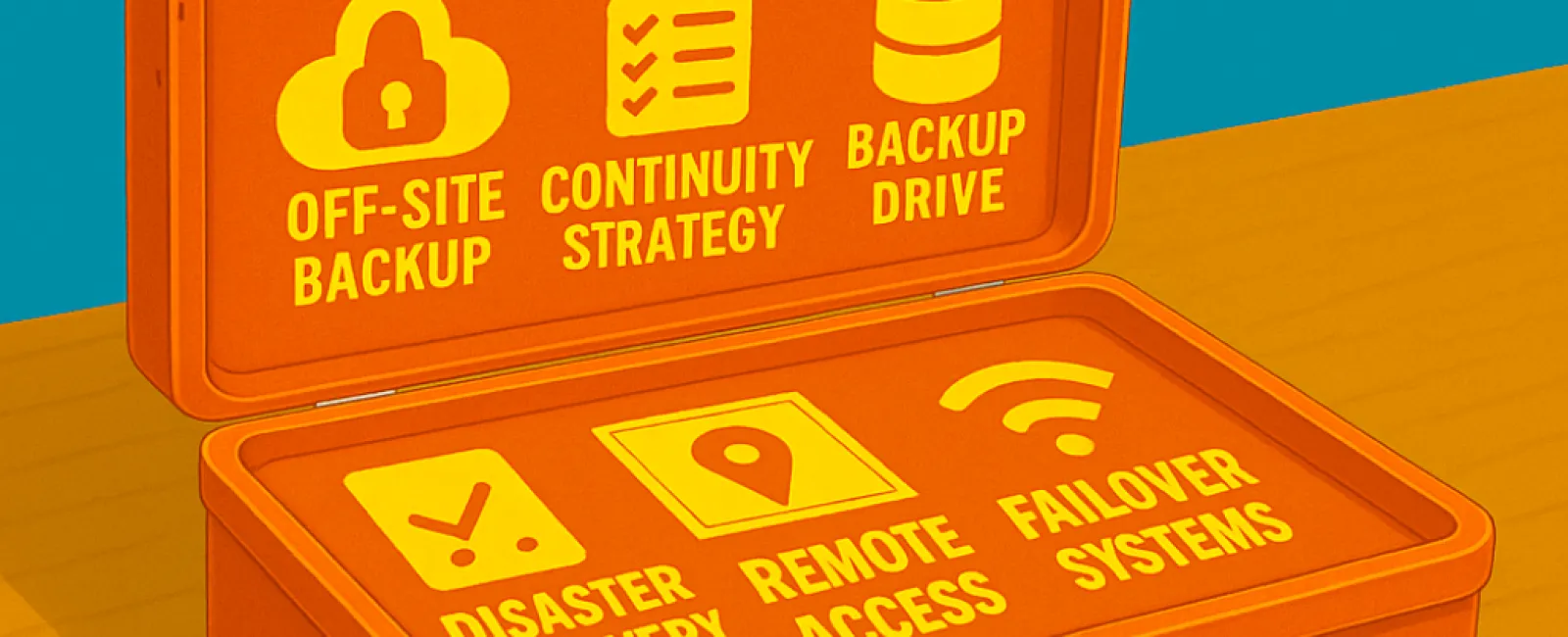July 28, 2025
Unexpected power failures, cyberattacks, hardware malfunctions, and natural catastrophes can strike without warning, causing severe disruption to small businesses. Many believe that simply having backups is sufficient, but restoring files alone doesn't guarantee continued operations. Without access to vital systems, the ability to support remote work, and effective communication with your team and clients, even brief interruptions can lead to prolonged setbacks. A dependable IT partner should equip you not only with backups but with a comprehensive strategy to ensure your business stays up and running under any circumstances.
Backups Alone Aren't Enough – You Need a Robust Continuity Strategy
Let's be upfront: backups are crucial, but they represent just one piece of the puzzle. What your business truly requires is a business continuity plan — a forward-thinking approach that guarantees seamless operations during and after any major disruption.
If your systems fail, data becomes unreachable, or your workplace is inaccessible, relying solely on local backup files won't suffice. Without a swift and clear recovery plan, you risk significant losses in revenue, reputation, and compliance.
Understanding the Difference: Backups vs. Business Continuity
Many businesses make this critical mistake:
● Backups allow you to restore lost data.
● Continuity ensures your business remains operational regardless of the crisis.
A comprehensive continuity plan addresses essential questions such as:
● How quickly can we recover?
● Where will our team work if the office is unavailable?
● Which systems are critical to our operations?
● Who is in charge of activating the recovery procedures?
Key components also include:
● Encrypted, off-site, and immutable backups
● Prioritized recovery objectives (RTO/RPO)
● Remote work capabilities
● Redundant systems and automatic failover mechanisms
● Regular disaster simulation testing to ensure readiness
If your IT provider can't confidently guide you through these critical aspects, you’re not truly protected — you’ve just been fortunate so far.
Is This Really a Threat to Your Business?
This isn’t just a scare tactic; these are real-world incidents with serious consequences. Recent years have seen:
● Florida hurricanes forcing hundreds of businesses to shut down due to lack of cloud access.
● North Carolina floods destroying on-site servers, wiping out months of vital records and invoices.
● California wildfires leveling entire offices in the Pacific Palisades, many without off-site recovery plans.
● Numerous small businesses crippled by ransomware attacks discovering their backups were corrupted or untested.
Disasters don’t discriminate — they affect businesses of every size every day.
Essential Questions You Should Be Asking Today
If disaster struck tomorrow, could your business continue operating?
Challenge your IT provider with these questions:
● How quickly can we recover from a ransomware attack?
● Are our backups regularly tested, and which systems do they cover?
● What’s the contingency plan if a flood or fire disables our office?
● Does our continuity plan comply with industry regulations?
● Can we continue serving clients if our team must work remotely?
If you hesitate to answer these confidently, your business may already be vulnerable.
Disasters Are Inevitable. Downtime Doesn’t Have To Be.
You can’t prevent every power outage, storm, or cyberattack, but you can control how your business responds.
A reliable IT partner helps you recover after an incident.
An exceptional one ensures your operations never miss a beat.
Ready to evaluate your business’s resilience?
Click Here or call us at 919-741-5468 to schedule your FREE 15-Minute Discovery Call and let’s safeguard your business against downtime.





